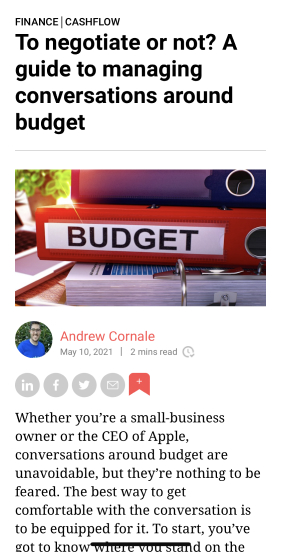Whether you’re a small-business owner or the CEO of Apple, conversations around budget are unavoidable, but they’re nothing to be feared. The best way to get comfortable with the conversation is to be equipped for it. To start, you’ve got to know where you stand on the matter. Our take on it all?
To navigate the conversation, preparation is key. So, how can small-business owners ensure they’re ready?



